Introduction
In April 2025, L. Ashley Cowart, Ph.D., interim chair of the newly established Department of Cellular, Molecular, and Genetic Medicine (CMGM), launched the CMGM Postdoctoral Association to foster a sense of community, collaboration and advocacy among postdoctoral researchers. The association was formed with the vision of supporting the professional and personal development of its members while aligning with the department’s broader goals. Its mission is to empower members for success in both academic and personal pursuits.
An executive council was elected to guide this initiative and represent the voices of postdoctoral scholars across the department. The founding and executive council for the 2025-2026 term includes:
- President: Usha Mahawar, Ph.D.
- Vice president: Maryam Jamil, Ph.D.
- Social chair: Anna Kovilakath, Ph.D.
- Treasurer: Juhi Mishra, Ph.D.
A message from the president
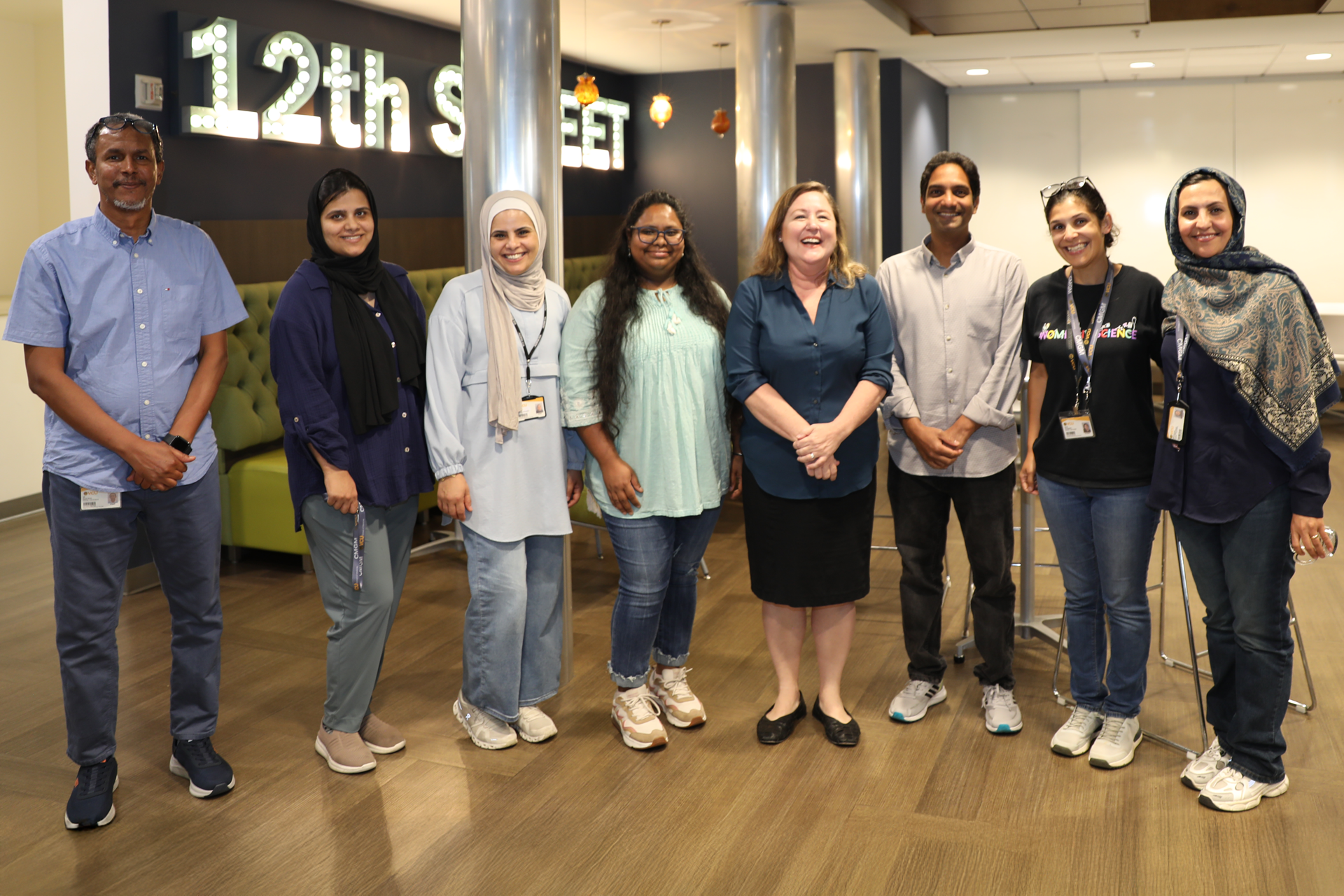 Welcome to the CMGM Postdoctoral Association! We are your voice and support system as you navigate the postdoctoral research journey in the CMGM department.
Welcome to the CMGM Postdoctoral Association! We are your voice and support system as you navigate the postdoctoral research journey in the CMGM department.
I am happy to serve, along with Alex, Anna and Surya, as pioneers and the first members of the CMGM Postdoctoral Association executive council. Already, our teamwork and shared commitment has transformed early challenges into opportunities, proving that passion can create something meaningful. We hope that our journey inspire us all to dream big and work together for a brighter future!
Usha Mahawar, Ph.D.
President, CMGM Postdoctoral Association
Our mission
The mission of the CMGM Postdoctoral Association is to foster innovation, collaboration, and personal growth within our CMGM community. We understand the unique challenges you face and are dedicated to creating a supportive environment that encourages academic and professional excellence. Through our resources, representation, and development opportunities, we aim to empower you in your career and personal life. We’re excited to have you in our community and look forward to celebrating your achievements!
Awards & Grants
VCU Department of Cellular, Molecular, and Genetic Medicine Postdoctoral Travel Grant
Applications for the Fall 2025 semester are now open!
Exciting news awaits you! The CMGM Postdoc Association has officially opened applications for its coveted travel grant award. From July 15 to September 15, 2025, you can apply for one of two $750 grants designed to support your research projects and foster your professional growth. This grant is tailored for you! It provides the financial backing needed to explore new ideas, network with fellow scholars, and elevate the quality of research.
For more details, contact ushasaraswat.mahawar@vcuhealth.org
About Travel Grant
The CMGM Postdoctoral Travel Grant Program has been established to support and promote the dissemination of research and scholarly activities by offering travel grants to postdoctoral fellows in the Department of Cellular, Molecular, and Genetic Medicine at Virginia Commonwealth University. This grant is designated solely for expenses related to participation in conferences or other suitable presentation venues. Awards will be allocated without consideration of quotas or distribution across various fields and programs. This travel grant is intended to provide additional support rather than replacing the PI's existing funding. It is important to note that funding is limited, and postdoctoral fellows applying for this program are not guaranteed financial support.
Eligibility:
The postdoctoral fellow who receives funding from this travel grant program must present the presentation. Travel must occur between August 1 and December 31 for the fall semester applications and between February 1 and June 30 for the spring semester applications. Additionally, the postdoctoral fellow must not have received this award in the last year.
Funding: The maximum award is $750. Two prizes, each worth $750, will be given per semester. This amount is subject to change based on funding.
For more information, please contact ushasaraswat.mahawar@vcuhealth.org
Robert F. Diegelmann Best Postdoc of the Year Award
Applications Now Open for the Dr. Robert F. Diegelmann Best Postdoc of the Year Award
The CMGM department is excited to announce that applications for the prestigious "Dr. Robert F. Diegelmann Best Postdoc of the Year Award" are now being accepted. Applications for the academic year 2025-26 will be accepted until August 30, 2025. Postdoctoral researchers who have made significant contributions in mentoring, collaboration, and research impact are encouraged to apply.
For more information on the application process and eligibility criteria, reach out to alexandra.gonsiewski@vcuhealth.org.
Don't miss this opportunity to be recognized for your outstanding contributions to science and research. Apply now!
About the award:
In 2025, the "Dr. Robert F. Diegelmann Outstanding Postdoc of the Year Award" was established to provide prestigious recognition for the exceptional contributions of postdoctoral researchers within the CMGM department. Dr. Diegelmann, PhD, is a retired distinguished career and emeritus professor from the former Department of Biochemistry and Molecular Biology.
This award recognizes the hard work, dedication, and innovative research conducted by postdocs, who are often underappreciated for scientific advancements. By celebrating their achievements, the award not only boosts the morale of the recipients but also inspires other researchers to strive for excellence.
Recognizing postdocs' efforts in mentoring, collaboration, and research impact fosters a supportive and collaborative research environment. This award serves as a testament to the significant role postdocs play in advancing knowledge and driving scientific progress. Ultimately, it underscores the importance of nurturing and valuing the next generation of researchers, ensuring a vibrant and dynamic future for the scientific community.
Eligibility Criteria:
- Postdoctoral Researchers: The award is open to all postdoctoral researchers associated with the CMGM department.
- Research Contributions: Candidates must have made significant contributions to their field of research, demonstrated through publications, presentations, or other scholarly activities.
- Mentorship and Collaboration: Candidates should have shown excellence in mentoring junior researchers and collaborating with peers.
Nomination Process
- Application Period: TBD (every year)
- Submission Requirements: Applicants must submit a detailed CV (covering last year only). A one-page document outlining their future goals and explaining how this award aligns with those objectives, and a letter of recommendation from the mentor.
- Review Committee: A committee of professors will review the applications and select the finalists.
Evaluation Criteria
- Research Impact: The significance and impact of the candidate's research on their field.
- Innovation: The originality and creativity of the candidate's research.
- Mentorship: The candidate's contributions to mentoring and supporting junior researchers.
- Collaboration: The candidate's ability to collaborate effectively with other researchers.
- Active participation in the events of the postdoc association.
Award Ceremony
- Announcement: TBD (every year).
- Prize: The award will include a certificate and a monetary prize.
Past recipients of the Awards.
Recipients of Travel Award Fall Semester 2025
- Anna Kovilkath
- Usha Mahawar
Recipient of the Robert F. Diegelmann Award for outstanding postdoctoral fellow
Upcoming Events
Past Events
Social Events-2025
CMGM Postdoc Association and Graduate Student Mingle event, August 29, 2025
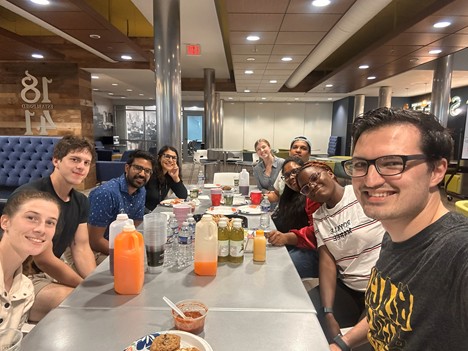
The Postdoc Association is excited to announce an engaging mingle event designed to bridge the gap between CMGM-associated postdoctoral researchers and graduate students. Scheduled for August 29th at noon at the Hunton Student Center, this initiative aims to foster collaboration, mentorship, and camaraderie among the next generation of scholars.
CMGM Postdoctoral Association Hosts Friendsgiving Gathering, November 21, 2025
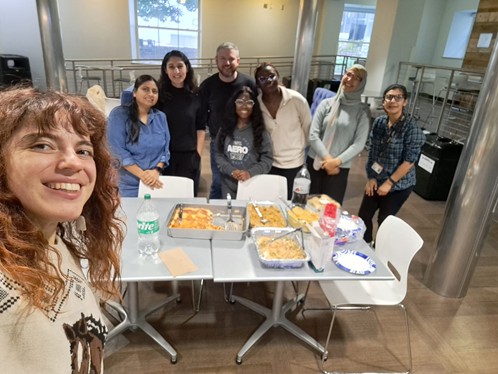
Article written by: Anna Kovilakath, PhD
Department of CMGM
VCU School of Medicine
November 26, 2025
The CMGM Postdoctoral Association hosted a Friendsgiving potluck on Friday, November 21, 2025, bringing together postdoctoral fellows and graduate students for an afternoon of food, conversation, and community ahead of Thanksgiving.
Held on the same day as the CMGM Faculty Research Retreat, the Friendsgiving event was open to all trainees and provided a relaxed space to connect across labs and training stages. Attendees shared a wide range of homemade dishes, including biriyani, lasagna, and an assortment of desserts, reflecting the diversity and camaraderie of the CMGM trainee community.
The event offered postdocs and graduate students the opportunity to step away from the bench, enjoy good food, and build connections in an informal setting. By hosting a trainee-centered gathering alongside a major departmental event, the Postdoctoral Association reinforced its commitment to fostering inclusivity, community, and peer support within CMGM.
The CMGM Postdoctoral Association looks forward to hosting events that promote connection and well-being among trainees throughout the academic year.
CMGM Postdoctoral Association Hosts Secret Santa with a Festive Twist, December 12, 2025

Article written by: Anna Kovilakath, PhD
Department of CMGM
VCU School of Medicine
December 15, 2025
The CMGM Postdoctoral Association hosted a Secret Santa gift exchange on Friday, December 12, 2025, from 12:00–1:00 p.m., bringing together 24 postdoctoral fellows and trainees for a festive end-of-year gathering filled with food, laughter, and friendly competition.
The event featured a catered lunch from Olive Garden and Mezeh, offering a mix of Italian and Mediterranean dishes, providing a relaxed backdrop for the holiday celebration. Attendees participated in a “Gift Stealing Edition” of Secret Santa, adding an interactive and playful twist to the traditional exchange.
Participants placed wrapped or unmarked gifts into a shared pile and drew numbers to determine the order of play. On each turn, players could either select and open a mystery gift or steal an already opened one, with each gift eligible to be stolen up to two times. If a gift was stolen, the affected participant immediately received another turn, keeping the game lively and unpredictable. Once all gifts were opened, the first player was given a final opportunity to keep their gift or make one last swap.
The exchange featured a wide range of creative and memorable gifts, including a still-warm rotisserie chicken, a LEGO set, a cozy blanket, and a waffle snowflake maker, all of which contributed to the lighthearted atmosphere and enthusiastic participation.
The Secret Santa event offered trainees an opportunity to step away from their daily routines, connect with colleagues, and celebrate the season together. The CMGM Postdoctoral Association looks forward to continuing to host community-building events that support connection and well-being among trainees.
Profiles
To learn more about our postdoctoral scholars, please select their name below:
Parnian Ahmadi, Ph.D.
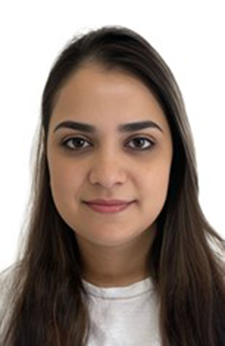 PI: Xiang-Yang Wang, Ph.D., Professor
PI: Xiang-Yang Wang, Ph.D., Professor
Education: I earned my Master's and Ph.D. in medicine and veterinary medicine, specializing in parasitology and immunology, from Miyazaki University, Japan.
Research: Acetaminophen (APAP) overdose remains a leading cause of acute liver failure, with limited treatment options beyond N-acetylcysteine (NAC). This study investigates the role of fatty acid oxidation (FAO), specifically through carnitine palmitoyltransferase 1A (CPT1A), as a novel protective and regenerative mechanism in APAP-induced liver injury. Using hepatocyte- and macrophage-specific CPT1A knockout mouse models, we explore how FAO modulates cytotoxic stress, immune responses, and liver regeneration. We also evaluate a novel AMP-activated protein kinase (AMPK) agonist to therapeutically enhance fatty acid oxidation (FAO) activity. These findings aim to uncover new metabolic strategies for treating APAP toxicity and improving liver recovery outcomes.
About me: When I’m not in the lab, you can find me hiking local trails, capturing nature through photography or experimenting with new recipes in the kitchen. I find that time outdoors fuels my creativity and brings balance to my life. I also enjoy science communication and mentoring, which help me stay connected and inspired both inside and outside the lab.
Contact: panian.ahmadi@vcuhealth.org
Jason R. Burchett, Ph.D.
PI: Sumitra Deb, Ph.D., Professor 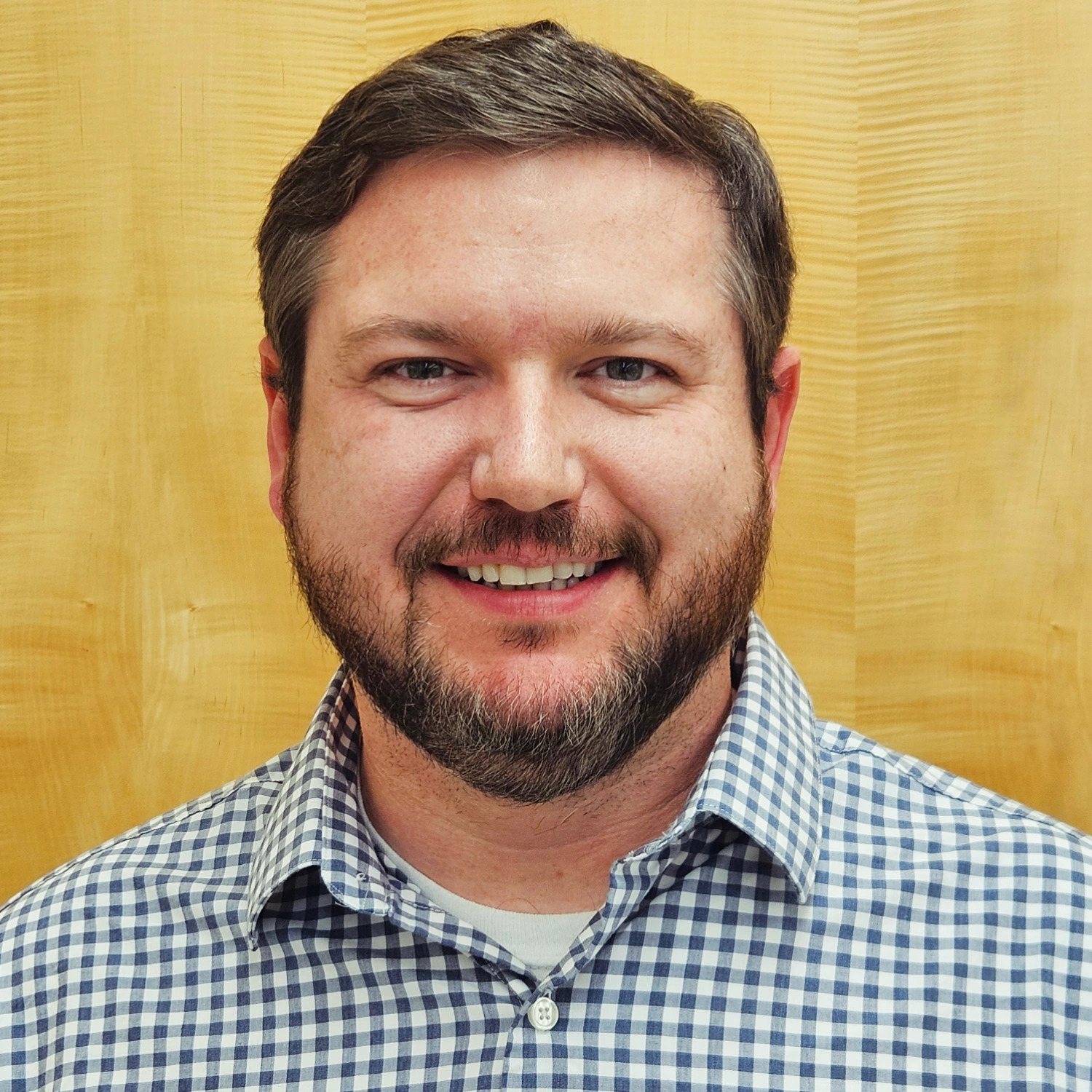
Education: Ph.D. in Microbiology and Immunology, Virginia Commonwealth University
Research: My research currently focuses on understanding the molecular biology of the human tumor suppressor p53.
About me: When I am not in the lab, I love to spend time with my wife and my dog relaxing or going outside. I am an avid hobbyist and I enjoy gaming in every form. I also have a passion for painting and spend much of my free time assembling models and painting them. I am happy to make connections and expand my network. Feel free to connect with me on LinkedIn.
Contact: Jason.Burchett@vcuhealth.org
Karen C. Hernandez Ramirez, Ph.D.
PI: Carlos Escalante, Ph.D., Associate Professor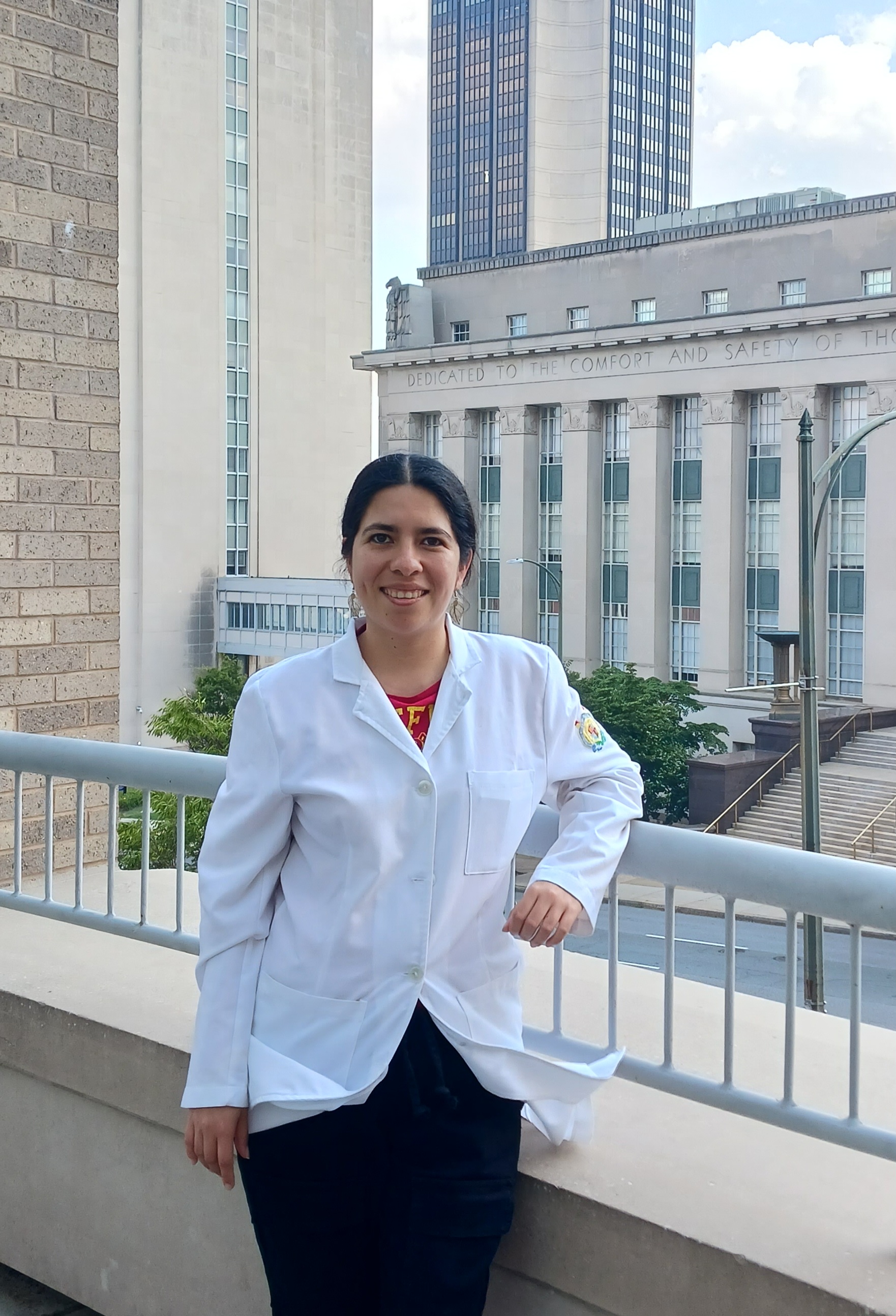
Education: Ph. D. in Biological Sciences, Experimental Biology, at the Institute of Chemical Biological Investigations of the Michoacana University of San Nicolas de Hidalgo, Mexico.
Research: My research is on the use of adeno-associated virus (AAV) as vectors in gene therapy. Our lab uses structural and biochemical assays to ascertain the role of the Rep proteins and their interactions with the viral capsid throughout the life cycle of the virus. I am currently studying the mechanism of DNA packaging by Rep proteins as one central issue in the implementation of AAVs is the presence of empty viral capsids. By growing our understanding of this mechanism, we can aim to improve its efficiency and AAV genetic therapy as a whole.
About me: I'm from Mexico and have been working at VCU for three years. When I'm not in the lab, I enjoy walking the city trails, scrapbooking, and knitting. I also love reading books and enjoying the sounds of birds singing. I struggle with socializing because I need to improve my English, but if you'd like to chat about life, I'd be happy to listen.
Contact: Karen.Hernandez@vcuhealth.org
Dandan Huang, Ph.D.
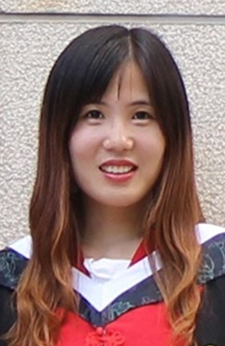 PI: Sarah Spiegel, Ph.D., Professor
PI: Sarah Spiegel, Ph.D., Professor
Education: Ph.D. in clinical discipline of Chinese and Western integrative medicine, Peking University
Research: My primary research focus is on lysosome function mediated by the bioactive sphingolipid metabolite ceramide in the context of glomerular injury and sclerosis. As I progressed in my career, I found myself increasingly drawn to cancer biology and oncology, and particularly the roles of bioactive sphingolipid metabolites. My research interests now are on the connection between metabolic disorders and pancreatic cancer, the most lethal cancer with an extremely poor survival rate.
About me: I enjoy exploring new experiences together with my family.
Contact: dandan.huang@vcuhealth.org
Maryam Jamil, Ph.D.
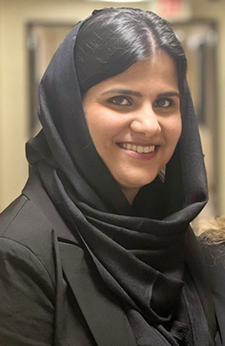 PI: L. Ashley Cowart, Ph.D., Professor
PI: L. Ashley Cowart, Ph.D., Professor
Education: Ph.D. in human and molecular genetics
Research: My research focuses on elucidating the role of non-canonical sphingolipids in hepatocellular carcinoma (HCC), with particular emphasis on how these atypical lipid species contribute to tumor progression and liver metabolic dysregulation. Using hepatocyte-specific genetic models and lipidomics, I investigate the functional impact of altered sphingolipid biosynthesis pathways. A central aim is to understand how enzymes like SPTLC3 drive the production of non-canonical sphingolipids and influence oncogenic signaling. This study aims to identify novel metabolic vulnerabilities in HCC that may inform future therapeutic strategies.
About me: When I'm not in the lab, you can usually find me running after my energetic toddler — being a mom of three keeps me constantly on my toes! While it’s tough to find time for traditional hobbies, I enjoy winding down with a good TV show or scrolling through YouTube. These simple moments help me recharge and bring a bit of balance to my busy life.
Contact: maryam.jamil@vcuhealth.org
Anna Kovilakath, Ph.D.
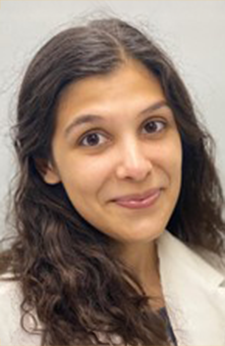 PI: Lauren Cowart, Ph.D., Professor
PI: Lauren Cowart, Ph.D., Professor
Education: Ph.D. in human genetics, Virginia Commonwealth University; M.S. in human genetics, Virginia Commonwealth University; B.Sc. in biotechnology, Manipal University
Research: My research investigates how aromatase inhibitors (AIs), commonly used in hormone receptor-positive breast cancer, contribute to atherosclerosis and cardiovascular risk. I utilize in vitro and in vivo models to investigate AI-induced alterations in vascular cell behavior, plaque progression, and macrophage function. A major focus is on the role of sphingolipids, particularly SPTLC3-derived species, in mediating these effects. This work bridges basic lipid biology with translational cardio-oncology, aiming to uncover mechanisms of AI-associated cardiotoxicity and identify potential therapeutic targets.
About me: When I'm not in the lab, you can usually find me rock climbing, reading or going on walks with my husband and our two dogs. I also enjoy quiet evenings, cuddled up with a good book and our cat, mTOR. These hobbies help me unwind and maintain a healthy work-life balance.
Contact: anna.kovilakath@vcuhealth.org
Usha Mahawar, Ph.D.
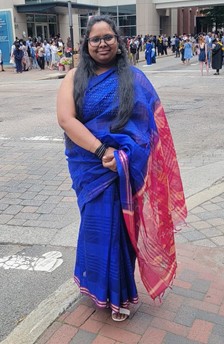 PI: Brian (Binks) Wattenberg, Ph.D., Professor
PI: Brian (Binks) Wattenberg, Ph.D., Professor
Education: Ph.D. in biochemistry and molecular biology, Virginia Commonwealth University
Research: My research focuses on understanding the mechanisms by which serine palmitoyltransferase (SPT), the first and rate-limiting enzyme in the de novo sphingolipid biosynthesis pathway, is regulated by its regulatory subunit, the ORMDLs. I am especially interested in the functional implications of ORMDL-based regulation of SPT in central nervous system (CNS) myelinating glial cells, such as oligodendrocytes, and skin keratinocyte cells.
About me: When I’m not immersed in my lab, you’ll find me on exciting shopping escapades or exploring the natural world’s beauty. I love unleashing my creativity through crafting. As a dedicated Reiki energy healing practitioner, I channel positive vibes and tranquility. My passion for crystals and gemstones inspires me, and I find joy in the soothing powers of sound and aroma healing. Embracing every moment, I’m all about adventure and spiritual growth!
Contact: I would love to connect! Feel free to reach out via email at ushasaraswat.mahawar@vcuhealth.org.
Shahid Maqbool Mir, Ph.D.
PI: Dr. Paul B. Fisher, M.Ph., Ph.D., FNAI, Professor
Education: Ph.D in Cancer Biology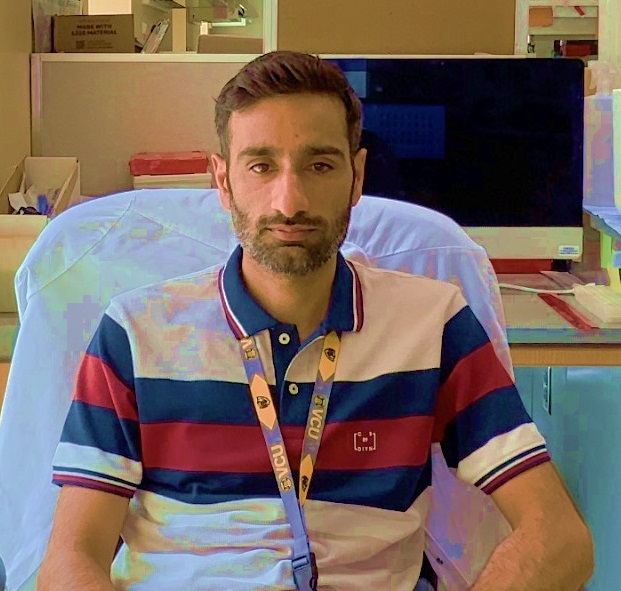
Research: My research focuses on studies designed to define precisely how established and newly discovered molecular determinants control cancer progression and the process of metastasis. My specific focus will be define the role of epigenetic memory in response to therapy and how it contributes to therapy resistance in breast cancer.
About me: Beyond the lab, I am an avid cricket enthusiast — both a passionate follower and an occasional player. I enjoy experimenting in the kitchen and discovering new cuisines through cooking. I love traveling to scenic destinations and often find relaxation in long drives. I take pride in helping others and naturally connect with people, building meaningful relationships with ease. Quality time with my family is central to my life and keeps me grounded.
Contact: ShahidMaqbool.Mir@vcuhealth.org
Juhi Mishra, Ph.D.
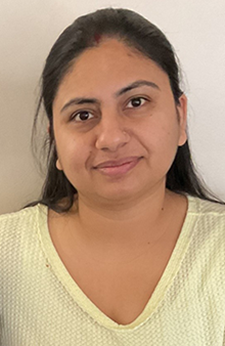 PI: Kaustubh Datta, Ph.D., Professor
PI: Kaustubh Datta, Ph.D., Professor
Education: Ph.D.
Research: My research aims to decipher the role of prostate cancer and tumor microenvironment interaction in promoting disease progression and therapy resistance. A thorough understanding of this process will help to identify appropriate targets for drug development, which can prevent the metastatic dissemination of castration resistant prostate cancer and thus can protect the lives of the patients from this lethal disease.
About me: Dedicated scientist and a devoted mother. I chose to live my life with gratitude and compassion. I love spending time with my family, and when I am not working, you can find me cooking or relaxing
Contact: juhi.mishra@vcuhealth.org
Pritam K. Roy, Ph.D.
Contact: Pritam.Roy@vcuhealth.org
Alexandra (Allie) Straus, Ph.D.
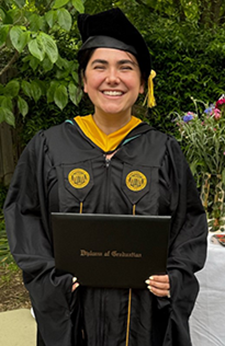 PI: Can Senkal, Ph.D., Assistant Professor
PI: Can Senkal, Ph.D., Assistant Professor
Education: Ph.D. in clinical and translational research, Virginia Commonwealth University; B.S., George Washington University
Research: My research focuses on the roles of sphingolipids in the onset and progression of cancer and other diseases. One of my projects investigates the molecular regulation of ceramide synthases in the context of cancer, with the goal of developing novel chemotherapeutics that target the generation of ceramide. My second project aims to understand the regulation of glycosphingolipid generation in cancer and works to elucidate the mechanistic underpinnings of glycosphingolipid depletion in colon, ovarian and cervical cancers.
About me: When I’m not in the lab, I spend time walking around the city or hiking out in nature.
Contact: alexandra.straus@vcuhealth.org
Vidhi Vashishtha, Ph.D.
PI: Sumitra Deb, Ph.D., Professor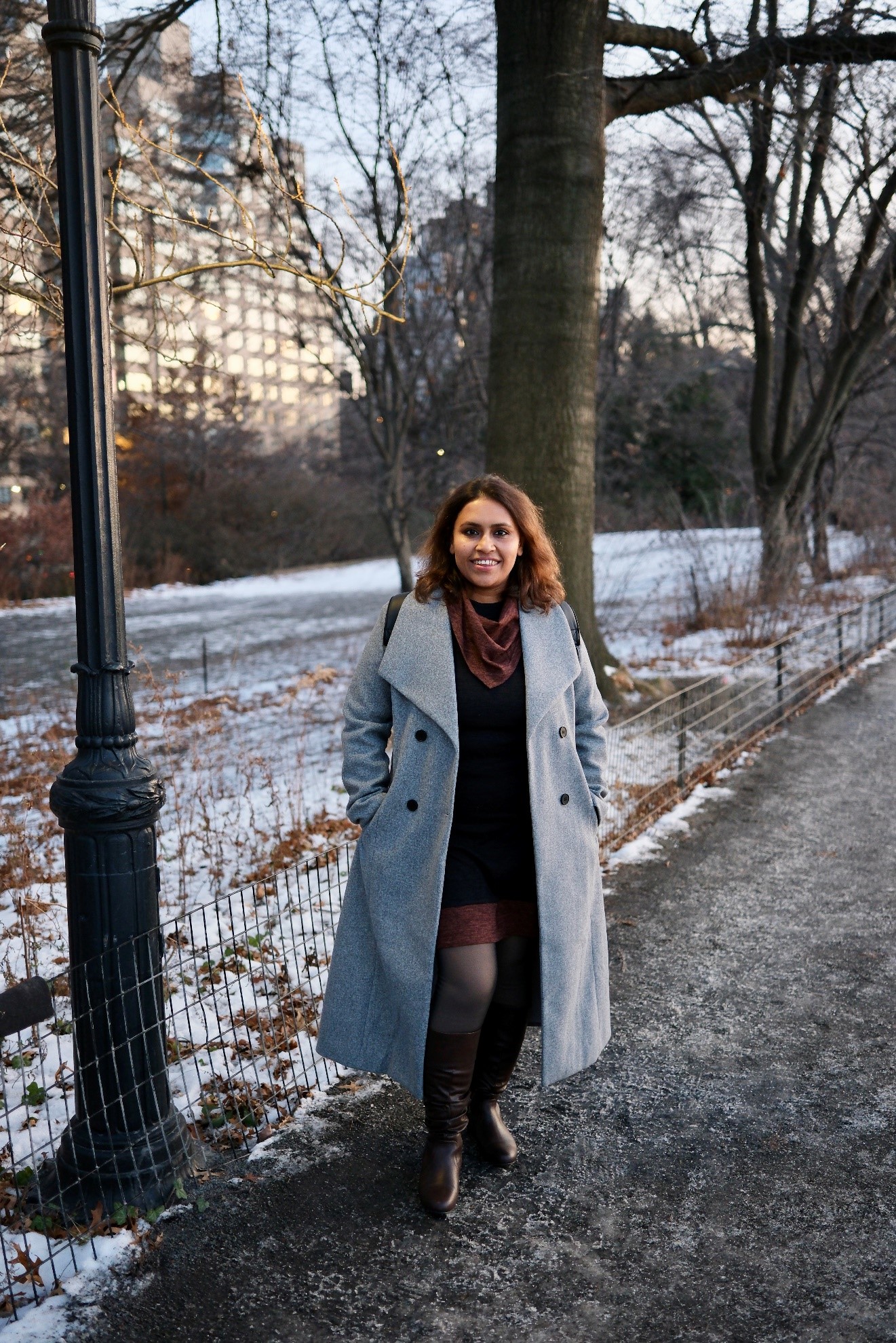
Education: Ph.D. in Biomedical Science, University of Delhi, Delhi, India
Research: I am currently working on the p53 protein, a crucial tumor suppressor gene that is frequently mutated in various cancers, including lung cancer. My research focuses on understanding and targeting mutant p53, which behaves differently from the wild-type form and contributes to tumor progression. We have identified a unique sequence that specifically binds to mutant p53, but not to the wild-type protein. Leveraging this specificity, our goal is to develop targeted therapeutic strategies that can selectively recognize and eliminate tumor cells expressing mutant p53. This approach opens new avenues for precision medicine in lung cancer and potentially other p53-mutant cancers.
About me: I’m a postdoctoral fellow at Virginia Commonwealth University, deeply passionate about research and discovery. My days are often spent immersed in the lab, where I thrive on solving complex problems and pushing the boundaries of knowledge. When I’m not in the lab, you’ll likely find me on the road—traveling, exploring nature, or experiencing new corners of the world. I have a deep appreciation for different cultures, especially through their food. Cooking is one of my favorite creative outlets, and I love experimenting with cuisines from around the globe. Adventure fuels my spirit. Whether it’s hiking in the mountains, trying something new, or simply wandering off the beaten path, I believe life is meant to be explored — both inside and outside the lab.
Contact: Vidhi.Vashishtha@vcuhealth.org
Yadu Vijayan, Ph.D.
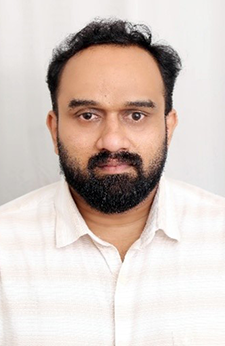 PI: Sarah Speigel, Ph.D., Professor and Christopher Green, Ph.D., Assistant Professor
PI: Sarah Speigel, Ph.D., Professor and Christopher Green, Ph.D., Assistant Professor
Education: Ph.D.
Research: I am investigating the molecular mechanisms that drive obesity, non-alcoholic fatty liver disease (NAFLD) and liver cancer, with a particular focus on the role of sphingolipids.
About me: When I'm not in the lab, you can find me taking long drives, watching movies, or listening to music — activities that help me unwind and recharge. I also enjoy playing badminton.
Contact: yadu.vijayan@vcuhealth.org
Rabha Mussa Younis, Ph.D.
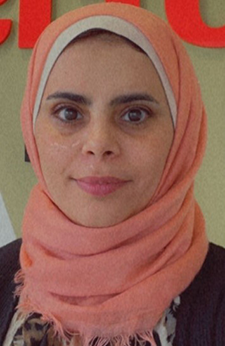 PI: Devanand Sarkar, Ph.D., Professor
PI: Devanand Sarkar, Ph.D., Professor
Education: Ph.D. in Pharmaceutical Sciences, School of Pharmacy, Virginia Commonwealth University (VCU); M.S. in Molecular Biology and Genetics, School of Medicine, VCU; B.Sc. in Genetic Engineering, Faculty of Medical Technology, Derna, Libya
Research: My research focuses on characterizing the gene SLC25A32, also known as the mitochondrial folate transporter, in the context of hepatocellular carcinoma. I am establishing inducible shRNA knockdown clones in HCC cells and generating lentiviruses targeting SLC25A32. Additionally, I am involved in the functional characterization of novel SLC25A32 inhibitors, developed in collaboration with the Medicinal Chemistry team, to investigate their molecular mechanisms of action. This study aims to elucidate the metabolic role of SLC25A32 in hepatocellular carcinoma and explore its potential as a therapeutic target.
About me: When I’m not in the lab, I enjoy cooking and spending time in nature, which helps me recharge and stay creative. My husband and I have a goal of visiting all 50 U.S. states. We’ve already begun exploring nearby places through weekend road trips whenever we get the chance. Traveling offers us a sense of adventure and discovery that brings balance to our busy schedules.
Contact: rabha.younis@vcuhealth.org
Shijun Yu, Ph.D.
PI: Suyun Huang, M.D., Ph.D., Professor
Education: M.D. in Oncology, Tongji University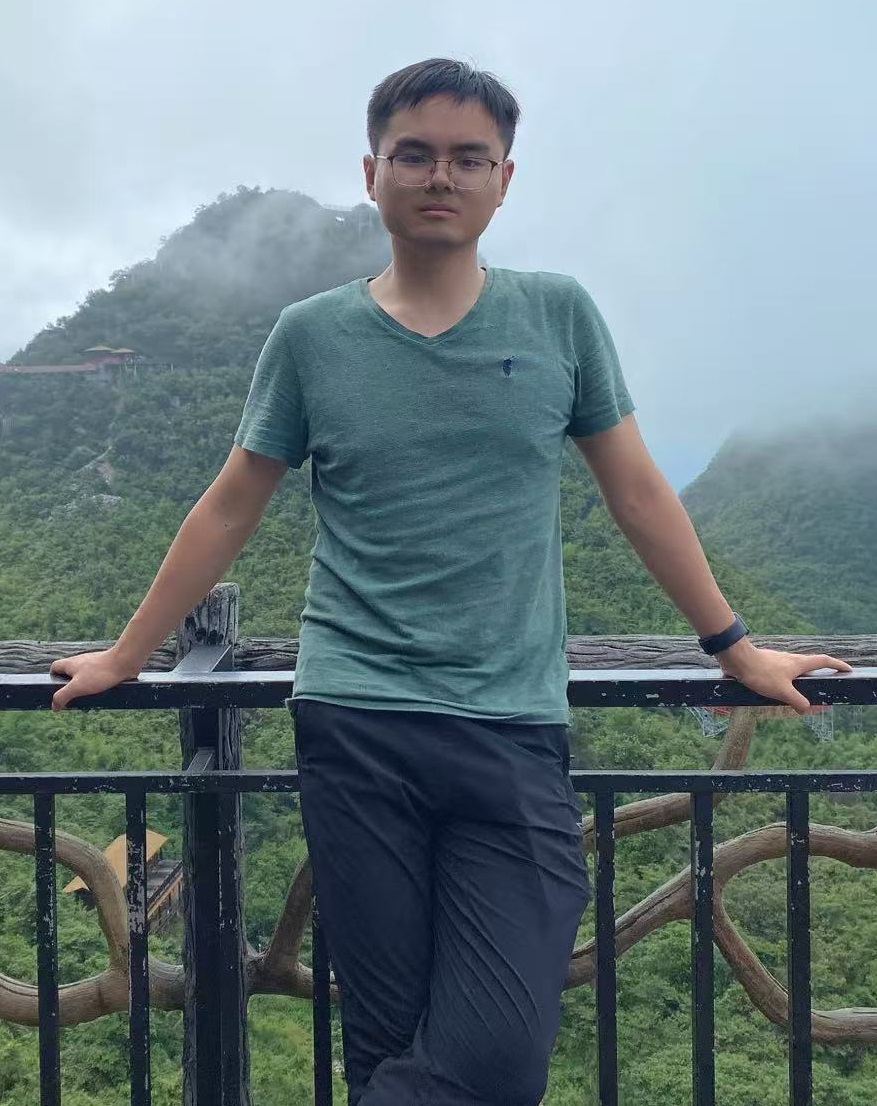
Research: My research in Dr. Huang’s laboratory focuses on understanding the molecular mechanisms that drive tumor progression, invasion, and metastasis, particularly in brain malignancies. I am especially interested in the epigenetic regulation of glioma and cancer stem cells, and how these pathways contribute to therapy resistance. Our work aims to identify key targets and develop more effective therapeutic strategies to combat these aggressive cancers.
About me: Outside the lab, I enjoy running and staying active. I’m especially passionate about long-distance running and have completed the Richmond full marathon. Training and racing help me stay balanced and focused in both science and life.
Contact: Shijun.Yu@vcuhealth.org
Masoumeh Zarei Kheirabadi, Ph.D.
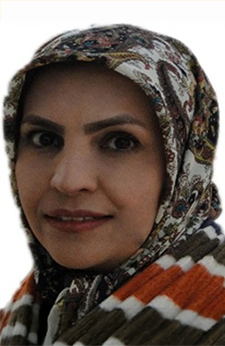 PI: Tomasz Kordula, Ph.D., Professor
PI: Tomasz Kordula, Ph.D., Professor
Education: Ph.D. in developmental and cellular biology
Research: I investigate the role of YY1 deletion in specific subpopulations of cerebellar astrocytes, utilizing innovative subpopulation-specific YY1 conditional knockout (cKO) mouse models. My work also explores chromatin architecture in astrocyte subpopulations at a single-cell resolution.
About me: When I'm not immersed in research, I enjoy spending quality time with my kids.
Contact: masoumeh.zarei@vcuhealth.org
 Welcome to the CMGM Postdoctoral Association! We are your voice and support system as you navigate the postdoctoral research journey in the CMGM department.
Welcome to the CMGM Postdoctoral Association! We are your voice and support system as you navigate the postdoctoral research journey in the CMGM department.


 PI: Xiang-Yang Wang, Ph.D., Professor
PI: Xiang-Yang Wang, Ph.D., Professor

 PI: Sarah Spiegel, Ph.D., Professor
PI: Sarah Spiegel, Ph.D., Professor PI: L. Ashley Cowart, Ph.D., Professor
PI: L. Ashley Cowart, Ph.D., Professor PI: Lauren Cowart, Ph.D., Professor
PI: Lauren Cowart, Ph.D., Professor PI: Brian (Binks) Wattenberg, Ph.D., Professor
PI: Brian (Binks) Wattenberg, Ph.D., Professor
 PI: Kaustubh Datta, Ph.D., Professor
PI: Kaustubh Datta, Ph.D., Professor PI: Can Senkal, Ph.D., Assistant Professor
PI: Can Senkal, Ph.D., Assistant Professor
 PI: Sarah Speigel, Ph.D., Professor and Christopher Green, Ph.D., Assistant Professor
PI: Sarah Speigel, Ph.D., Professor and Christopher Green, Ph.D., Assistant Professor PI: Devanand Sarkar, Ph.D., Professor
PI: Devanand Sarkar, Ph.D., Professor
 PI: Tomasz Kordula, Ph.D., Professor
PI: Tomasz Kordula, Ph.D., Professor